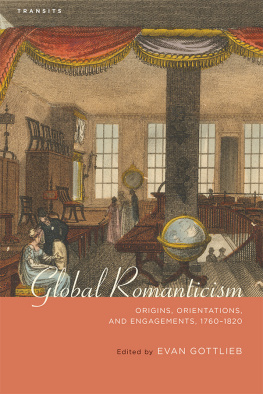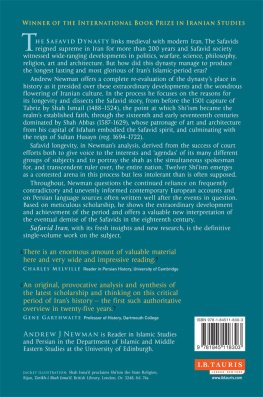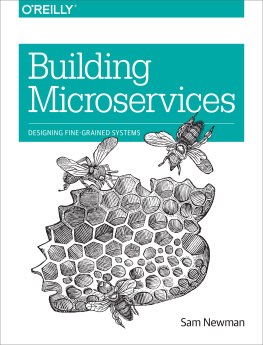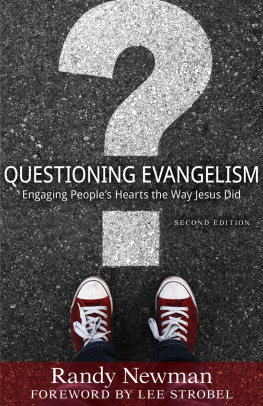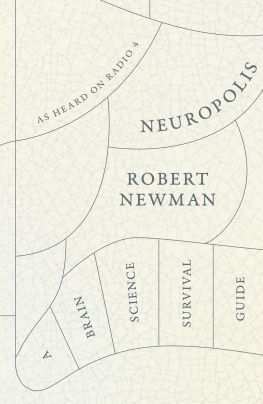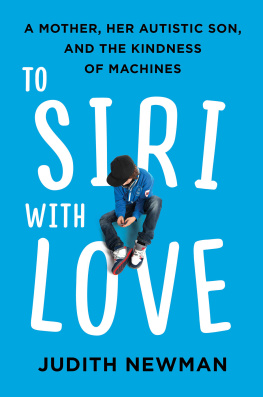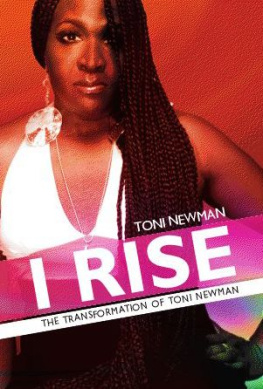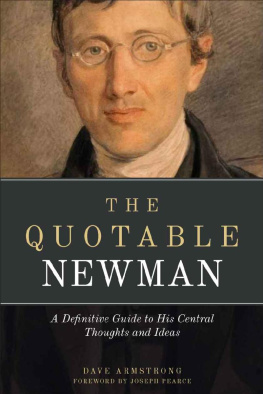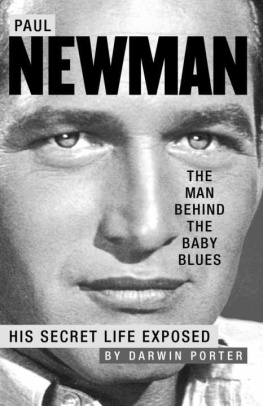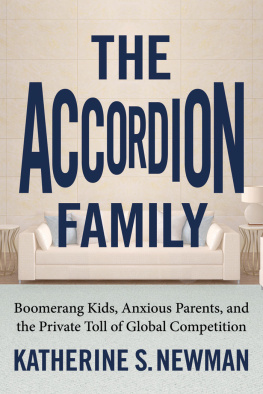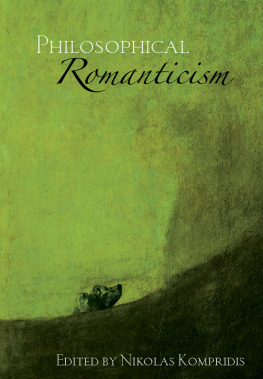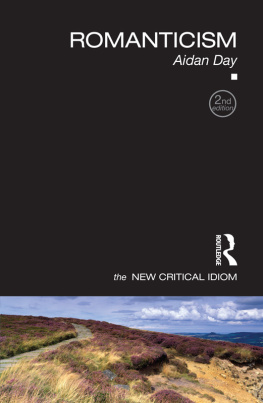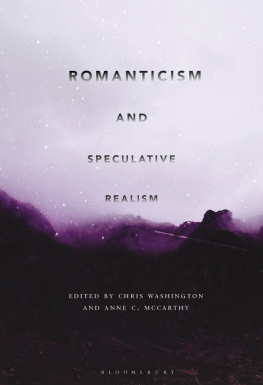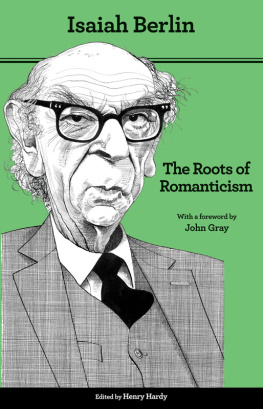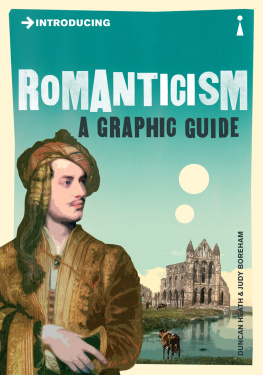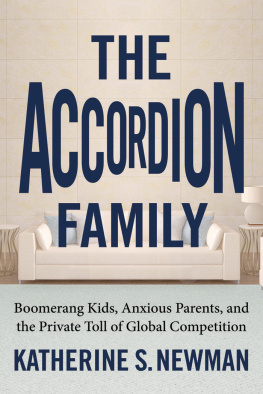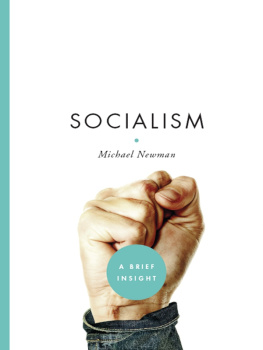Newman - Global Romanticism
Here you can read online Newman - Global Romanticism full text of the book (entire story) in english for free. Download pdf and epub, get meaning, cover and reviews about this ebook. year: 2014, publisher: Bucknell University Press, genre: Romance novel. Description of the work, (preface) as well as reviews are available. Best literature library LitArk.com created for fans of good reading and offers a wide selection of genres:
Romance novel
Science fiction
Adventure
Detective
Science
History
Home and family
Prose
Art
Politics
Computer
Non-fiction
Religion
Business
Children
Humor
Choose a favorite category and find really read worthwhile books. Enjoy immersion in the world of imagination, feel the emotions of the characters or learn something new for yourself, make an fascinating discovery.
- Book:Global Romanticism
- Author:
- Publisher:Bucknell University Press
- Genre:
- Year:2014
- Rating:4 / 5
- Favourites:Add to favourites
- Your mark:
- 80
- 1
- 2
- 3
- 4
- 5
Global Romanticism: summary, description and annotation
We offer to read an annotation, description, summary or preface (depends on what the author of the book "Global Romanticism" wrote himself). If you haven't found the necessary information about the book — write in the comments, we will try to find it.
Global Romanticism — read online for free the complete book (whole text) full work
Below is the text of the book, divided by pages. System saving the place of the last page read, allows you to conveniently read the book "Global Romanticism" online for free, without having to search again every time where you left off. Put a bookmark, and you can go to the page where you finished reading at any time.
Font size:
Interval:
Bookmark:
Global
Romanticism
Transits
Literature, Thought & Culture, 1650-1850
Series Editors
Greg Clingham
Bucknell University
Kate Parker
University of WisconsinLa Crosse
Transits is the next horizon. The series of books, essays, and monographs aims to extend recent achievements in eighteenth-century studies and to publish work on any aspects of the literature, thought, and culture of the years 16501850. Without ideological or methodological restrictions, Transits seeks to provide transformative readings of the literary, cultural, and historical interconnections between Britain, Europe, the Far East, Oceania, and the Americas in the long eighteenth century, and as they extend down to present time. In addition to literature and history, such global perspectives might entail considerations of time, space, nature, economics, politics, environment, and material culture, and might necessitate the development of new modes of critical imagination, which we welcome. But the series does not thereby repudiate the local and the national for original new work on particular writers and readers in particular places in time continues to be the bedrock of the discipline.
Selected titles in the Series
The Family, Marriage, and Radicalism in British Womens Novels of the 1790s: Public Affection and Private Affliction
Jennifer Golightly
Feminism and the Politics of Travel After the Enlightenment
Yal Schlick
John Galt: Observations and Conjectures on Literature, History, and Society
Regina Hewitt
Performing Authorship in Eighteenth-Century English Periodicals
Manushag N. Powell
Excitable Imaginations: Eroticism and Reading in Britain, 16601760
Kathleen Lubey
The French Revolution Debate and the British Novel, 17901814: The Struggle for Historys Authority
Morgan Rooney
Rococo Fiction in France, 16001715: Seditious Frivolity
Allison Stedman
Poetic Sisters: Early Eighteenth-Century Women Poets
Deborah Kennedy
Richard Brinsley Sheridan: The Impresario in Political and Cultural Context
Jack E. DeRochi and Daniel J. Ennis
Studies in Ephemera: Text and Image in Eighteenth-Century Print
Kevin Murphy and Sally ODriscoll
Developments in the Histories of Sexualities
Chris Mounsey
Enlightenment in Ruins: The Geographies of Oliver Goldsmith
Michael Griffin
Reading Christopher Smart in the Twenty-first Century: By Succession of Delight
Edited by Min Wild and Noel Chevalier
Wordsworth, Hemans, and Politics, 18001830: Romantic Crises
Benjamin Kim
Print Technology in Scotland and America 17401800
Louis Kirk McAuley
The Idea of Disability in the Eighteenth Century
Chris Mounsey
Ravishment of Reason: Governance and the Heroic Idioms of the Late Stuart Stage, 16601690
Brandon Chua
Global Romanticism: Origins, Orientations, and Engagements, 17601820
Edited by Evan Gottlieb
For a complete list of titles in this series, please visit http://www.bucknell.edu/universitypress
Transits
Global
Romanticism
Origins, Orientations, and Engagements, 17601820
Edited by Evan Gottlieb

LEWISBURG
BUCKNELL UNIVERSITY PRESS
Published by Bucknell University Press
Copublished by The Rowman & Littlefield Publishing Group, Inc.
4501 Forbes Boulevard, Suite 200, Lanham, Maryland 20706
www.rowman.com
Unit A, Whitacre Mews, 26-34 Stannary Street, London SE11 4AB
Copyright 2015 by Rowman & Littlefield for edited collections
All rights reserved. No part of this book may be reproduced in any form or by any electronic or mechanical means, including information storage and retrieval systems, without written permission from the publisher, except by a reviewer who may quote passages in a review.
British Library Cataloguing in Publication Information Available
Library of Congress Cataloging-in-Publication Data
Global romanticism : origins, orientations, and engagements, 1760-1820 / edited by Evan Gottlieb.
pages cm. (Transits: literature, thought & culture, 1650-1850)
Includes bibliographical references and index.
ISBN 978-1-61148-625-4 (cloth : alk. paper) ISBN 978-1-61148-626-1 (electronic) 1. Romanticism. 2. Globalization in literature. I. Gottlieb, Evan, 1975- editor.
PN603.G57 2015
809.9145dc23
2014036485
 The paper used in this publication meets the minimum requirements of American National Standard for Information SciencesPermanence of Paper for Printed Library Materials, ANSI/NISO Z39.48-1992.
The paper used in this publication meets the minimum requirements of American National Standard for Information SciencesPermanence of Paper for Printed Library Materials, ANSI/NISO Z39.48-1992.
Printed in the United States of America
Contents
I
Origins
Introduction
British Romanticism and Early Globalization: Developing the Modern World Picture
Evan Gottlieb
G lobalization is now well established as one of the twenty-first centurys most-discussed subjects. Nevertheless, the connection asserted in this collections title between globalization and British Romanticism may strike some readers as counterintuitive; the former, after all, is largely associated (especially in popular accounts) with contemporaneity, and the latter continues to be associated, politically speaking, with colonialism and imperialism. This introduction attempts to revise both of these positions, first by reviewing how changes in Romantic literary historical scholarship are facilitating new understandings of the eras sociopolitical investments, then by considering some working definitions and recent theories of globalization itself. Finally, I turn to a brief discussion of this volumes organization and thematic concerns. As readers will discover for themselves, the chapters in this volume make a convincing case that the Romantics were alternately fascinated, frightened, and inspired by their increasingly globalized world.
British Romanticisms political commitments have long been the subject of interest and contestation, from early-nineteenth-century reviewers excoriation of John Keatss cockney pretensions, through the Victorians whitewashing of Percy Shelleys radical commitments, to the New Critics willful exclusion of all politics from the aesthetic project of Romantics. Although the academic recovery of the political dimensions of Romanticism has several modern starting points, Marilyn Butlers Romantics, Rebels, and Reactionaries: English Literature and Its Background, 17601830 (1981) deserves particular notice for marking a turning point. Although its subtitle sounds vestigially New Critical, Butlers approach is remarkably forward thinking. Instead of claiming a clear demarcation between a canonical set of literary texts and the historical background from which it emerges like a timeless butterfly shedding its chrysalisthe paradigm that M. H. Abrams, Harold Bloom, and Northrop Frye each employed, with characteristic variations, to bolster Romanticisms critical respectability a few years earlierButler makes the opposite case. Asserting in her opening chapter that literature, like all art, like language, is a collective activity, powerfully conditioned by social forces, she proceeds to demonstrate that authors are not the solitaries of the Romantic myth, but citizens. In doing so, Butler not only anticipates the demystifying impetus of Jerome J. McGanns equally influential The Romantic Ideology: A Critical Investigation (1983) but also positions Romantic studies to take full advantage of the sociologically oriented, New Historical approaches that would dominate Anglo-American literature departments during the coming decades. Despite using the traditional modifier English in her subtitle to describe the periods literature, moreover, Butler takes a broad approach in practice, paying welcome attention to Irish contributions to Romanticism, as well as to Scottish and Welsh inflections. She thus both takes seriously the political ramifications of the Romantics aesthetic and generic choicesfrom William Cobbetts pastoral radicalism to Keatss liberal historicismand anticipates contemporary four-nations or archipelagic understandings of Great Britain as internally heterogeneous.
Next pageFont size:
Interval:
Bookmark:
Similar books «Global Romanticism»
Look at similar books to Global Romanticism. We have selected literature similar in name and meaning in the hope of providing readers with more options to find new, interesting, not yet read works.
Discussion, reviews of the book Global Romanticism and just readers' own opinions. Leave your comments, write what you think about the work, its meaning or the main characters. Specify what exactly you liked and what you didn't like, and why you think so.

